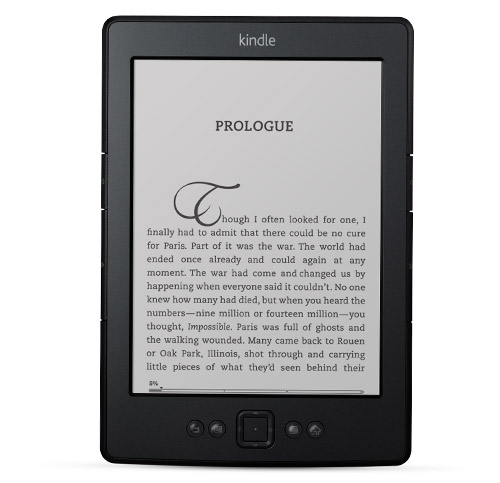 The traditional high street bookshop is fast disappearing and so what does the future hold for the professional bookseller? The move towards the internet has been massive but competition is ferocious and margins have gotten tighter and tighter. Who will survive and in what form?
The traditional high street bookshop is fast disappearing and so what does the future hold for the professional bookseller? The move towards the internet has been massive but competition is ferocious and margins have gotten tighter and tighter. Who will survive and in what form?
There will always be a place for bookstores, albeit a smaller and smaller one. The internet cannot provide for the casual browser who loves the smell and feel of that dusty cosy book filled haven from the real world. Rare books, collectors items, first editions you need to see them and haggle with the owner over the price. This used to be the only way to buy a used book, but we all know that book buying has exploded onto the internet in the guise of Amazon, Abebooks, Alibris et al. This is definitely the future, at least for the volume trading of cheap, mass produced novels, textbooks, reference books, manuals, literature etc. etc. etc.
Most bookstores survive by adding their inventory to the database of these big book listing services but the trend is relentlessly moving away from the costly main street premises to the relatively cheap shop window of the internet where the biggest cost is often shipping.
I remember from my school economics that the ‘perfect market’ was when everyone knew the price that everyone else was selling for. This theoretical market is now a reality and book comparison sites and book search engines like https://www.usedbooksearch.net instantly give the best price and location for any given book criteria. It has gotten so competitive in the used book market that paperback novels are selling for 1 cent and any profit is contained in the shipping charge. Herein lies the future where no dealer can afford to rent a shop, cannot afford the cost of any storage area, cannot even afford to employ staff because the profit margin is so small on every single book, just to make a sale.
The most efficient means of delivering the written word is electronically. And with the  affordability of the kindle, what started off as the choice of a few tech savvy people, the reading of ebooks is now a common sight, especially when people are travelling. That being said, many people would still rather print read from paper rather than read it exclusively from the screen and ebooks are generally a lot more expensive than their physical counterparts. In part this is because VAT is charged on ebooks and not on physical books. But what will happen if and when this glitch in the tax system is ironed out? For the moment though, it seems like there may be too much risk of an outcry if they suddenly put this tax onto physical books, and it looks like they would be reluctant to take away this revenue earner from ebooks.
affordability of the kindle, what started off as the choice of a few tech savvy people, the reading of ebooks is now a common sight, especially when people are travelling. That being said, many people would still rather print read from paper rather than read it exclusively from the screen and ebooks are generally a lot more expensive than their physical counterparts. In part this is because VAT is charged on ebooks and not on physical books. But what will happen if and when this glitch in the tax system is ironed out? For the moment though, it seems like there may be too much risk of an outcry if they suddenly put this tax onto physical books, and it looks like they would be reluctant to take away this revenue earner from ebooks.
Although us physical book lovers may like to think that price isn’t the main factor of importance in the physical vs ebook debate, in reality it is playing a big driving factor. Part of the cost of a book stems from having a middle man. Sites such as Amazon and Ebay have driven down the cost of books considerably, due to the absence of a need for a brick and mortar business. However, at the end of the day, they are still middle men. Is the future of book selling a scenario whereby the middle man is cut out or at least cut down further? The success of ‘50 shades of grey‘ clearly demonstrates the recent rise to power of self-publishing. If we can cut out publishing houses, can we cut out book selling sites as well? Maybe with some form of automated system that enables a book to move directly from the writer to the customer.
Whatever the future world of book selling online looks like, one thing is for sure. The current generation uses pen and paper dramatically less then earlier generations, they spend considerably more time in front of screens, and are much more digitally aware. There may still be a balance between the physical book and ebooks at the moment. But if the price of ebooks is driven downwards with changes to taxes or a further cut to middle men, then it is bound to decrease the size of the physical book market further. Although maybe this will just serve to make rare and used books more of a niche market, for avid fans and collectors. Hence, there will be fewer people buying used books, but the price per item will be far higher.